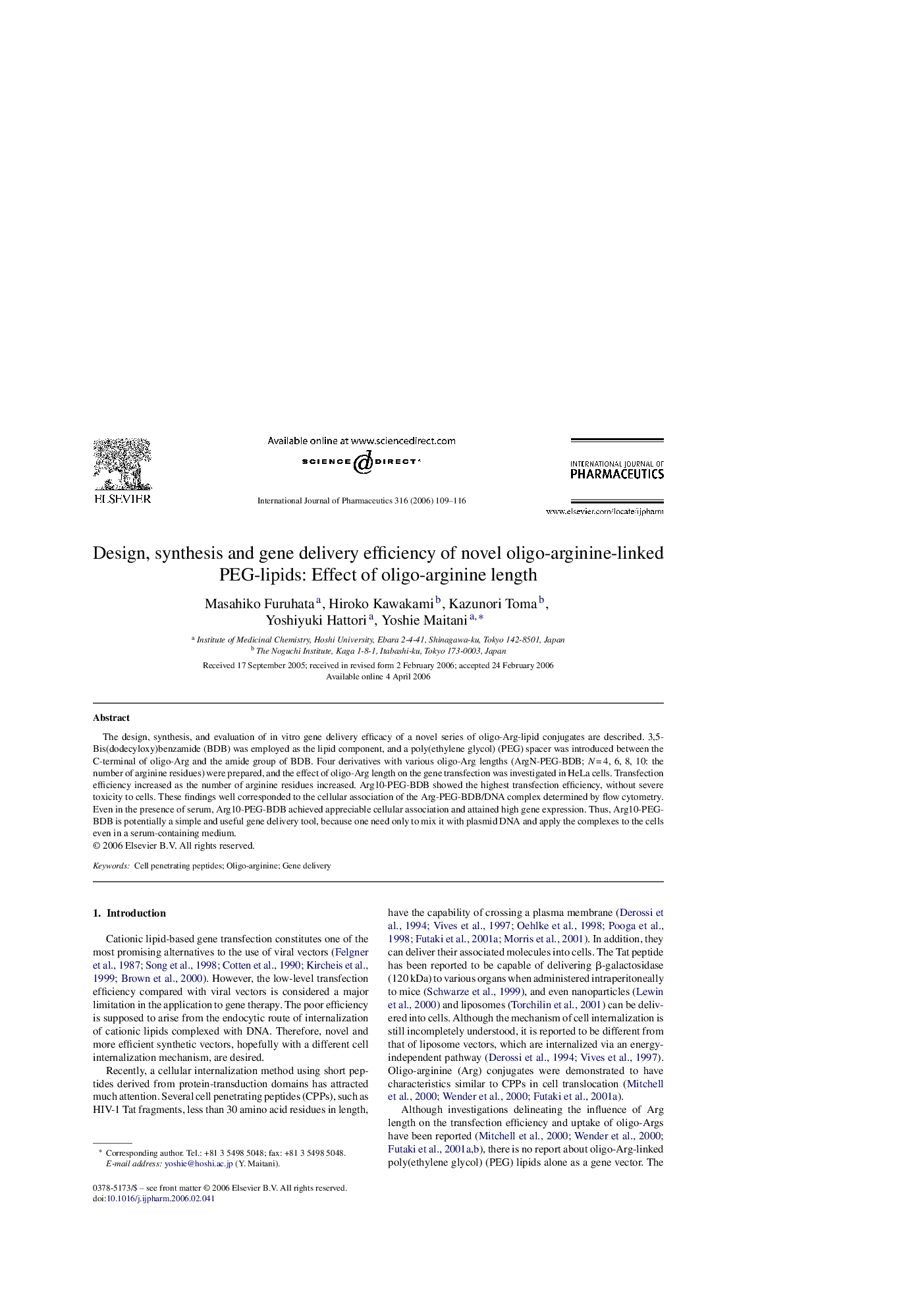| Article ID | Journal | Published Year | Pages | File Type |
|---|---|---|---|---|
| 2506952 | International Journal of Pharmaceutics | 2006 | 8 Pages |
The design, synthesis, and evaluation of in vitro gene delivery efficacy of a novel series of oligo-Arg-lipid conjugates are described. 3,5-Bis(dodecyloxy)benzamide (BDB) was employed as the lipid component, and a poly(ethylene glycol) (PEG) spacer was introduced between the C-terminal of oligo-Arg and the amide group of BDB. Four derivatives with various oligo-Arg lengths (ArgN-PEG-BDB; N = 4, 6, 8, 10: the number of arginine residues) were prepared, and the effect of oligo-Arg length on the gene transfection was investigated in HeLa cells. Transfection efficiency increased as the number of arginine residues increased. Arg10-PEG-BDB showed the highest transfection efficiency, without severe toxicity to cells. These findings well corresponded to the cellular association of the Arg-PEG-BDB/DNA complex determined by flow cytometry. Even in the presence of serum, Arg10-PEG-BDB achieved appreciable cellular association and attained high gene expression. Thus, Arg10-PEG-BDB is potentially a simple and useful gene delivery tool, because one need only to mix it with plasmid DNA and apply the complexes to the cells even in a serum-containing medium.
